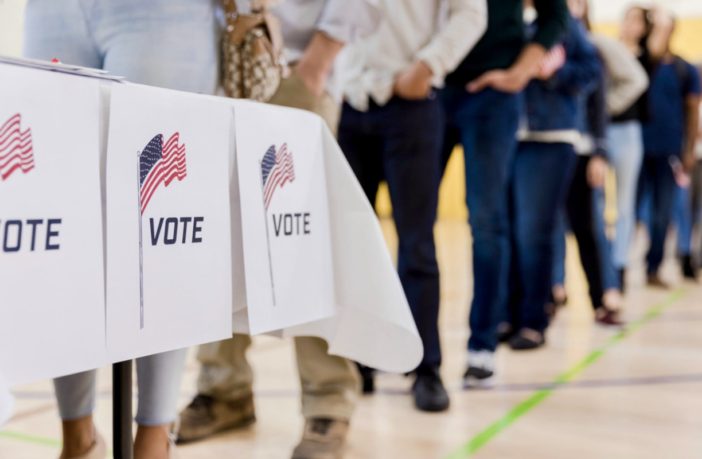by Daniel Johnson
May 13, 2024
Georgia’s SB 189, which Gov. Brian Kemp signed into law on May 6, was supposed to be a fix of the state’s voter fraud issues, but some voter rights advocates believe it could make the issue of voter suppression worse.
Georgia’s SB 189, which Gov. Brian Kemp signed into law on May 6, was supposed to fix the state’s alleged voter fraud issues. However, some voter rights advocates believe it could make the issue of voter suppression worse. Meanwhile, the state’s Republican Party defends the bill. The bill, set to take effect in July, will allow Georgia residents to challenge the voter registration of other citizens using allegedly dubious means.
As ProPublica reported, the Georgia branch of the American Civil Liberties Union has threatened to sue the state over its concern that the law violates the National Voter Registration Act. Caitlin May, a voting rights attorney with the group, told the outlet, “It’s bad policy and bad law and will open the floodgates to bad challenges.”
Meanwhile, Georgia’s State Election Board is trying to determine what its next course of action should be, as John Fervier, the board chair, told ProPublica. Fervier believes that the board will have to instruct election officials on what to do, but he doesn’t know what that will entail. “We’re going to probably have to try and provide some instruction telling” election officials how to respond to SB 189, said Fervier. “I don’t know if that will come from the State Election Board or from the secretary of state’s office. But we’re one day past the signing of the legislation, so it’s still too early for me to comment on what kind of instruction will go out at this point.”
Georgia State Rep. John LaHood, a Republican who helped pass the bill, allegedly told the outlet that he believed the bill would not affect voter suppression. “I see this as being pro-America, pro-accuracy, pro-transparency, and pro-election integrity,” LaHood said. “I don’t see it being” about voter suppression “whatsoever.”
Conservative organizations have signaled their intent to challenge many voter registrations in this year’s election under the law. The state’s GOP chair told the Atlanta Journal-Constitution that he believes the legislative session amounted to “a home run for those of us concerned about election integrity.”
Andrea Young, Georgia ACLU’s executive director, said in a press release concerning the passage of SB 189, “SB 189 is a step back for voters’ rights and voting access in the state of Georgia,” Young said. “Most importantly, this bill will require already overburdened election workers to spend time processing unnecessary voter challenges. As always, elected state officials should work to make voting easier and not more difficult for Georgia citizens. We are committed to protecting Georgia voters and will see the governor in court.”
According to Democracy Docket, “SB 189 makes it even easier to invalidate a voter’s eligibility by not placing any limits on which factors can be used to make a valid claim — like if someone is registered to vote or has a ‘homestead exemption’ in another jurisdiction. It also allows voters to be removed from the rolls up until 45 days before an election — a violation of the National Voter Registration Act, which bans removal of voters within 90 days of a federal election. The new law also eliminates the practice of using QR codes on ballots to count votes electronically.”
In its press release decrying the bill, the Southern Poverty Law Center argued that the bill is a response from Kemp to “baseless conspiracy theories.” Courtney O’Donnell, a senior staff attorney for voting rights with the SPLC, said in a statement, “Election officials already carry the huge civic responsibility of safeguarding our ballots and ensuring that every vote is counted,” said O’Donnell. “Now, Gov. Kemp has further burdened them by enacting an election law that is responsive to baseless conspiracy theories.”
O’Donnell continued, “SB 189 green lights unsubstantiated voter challenges and creates further confusion for election administrators in resolving voter challenges. Furthermore, it targets unhoused voters by making them more susceptible to voter challenges and requiring them to make the county registrar’s office their mailing address. The passage of SB 189 represents a significant setback in the fight for equitable and accessible elections in Georgia and a stark reminder that our fight for voting rights is far from over.”



